| |
|
December 10, 2023
Hi ,
 A subject that frequently comes up when trying to decide upon a healthy diet for preventing disease and premature aging is choosing what type of oils to include in such a diet. This is a hotly debated subject amongst researchers and food gurus alike. Mainstream doctors are typically about 20 years behind the times when it comes to good diet advice. It simply
takes that long for research data to get vetted, reproduced, and then agreed upon in the world of research before practicing doctors will ever be introduced to the information. Even then debates will rage on for 50 years before some semblance of consensus settles in among the research community. Research is much like the seven blind men and the Elephant story. Each line of research only looks at a tiny bit of the puzzle. Reality is far too complex for any single or even any hundred studies to
pin down what is really happening in the body.
A subject that frequently comes up when trying to decide upon a healthy diet for preventing disease and premature aging is choosing what type of oils to include in such a diet. This is a hotly debated subject amongst researchers and food gurus alike. Mainstream doctors are typically about 20 years behind the times when it comes to good diet advice. It simply
takes that long for research data to get vetted, reproduced, and then agreed upon in the world of research before practicing doctors will ever be introduced to the information. Even then debates will rage on for 50 years before some semblance of consensus settles in among the research community. Research is much like the seven blind men and the Elephant story. Each line of research only looks at a tiny bit of the puzzle. Reality is far too complex for any single or even any hundred studies to
pin down what is really happening in the body.
 So back to the question about oils. Which ones are good for you and which ones are bad? Right off the bat, we run into a big problem; people are different from each other. Our genetics, our dietary history, our lifestyle, our current health, and a dozen more issues all play into what is good for us and what is not. I can feel pretty confident that a high-speed car crash is bad for everyone, but
dietary advice is very different. For instance, food allergies point out that certain foods that are fine for most people can be deadly for some individuals. A more relevant example is the recent research I have been uncovering that shows that the impact of eating fats when you are already obese is very different than eating fats when you are metabolically fit and trim. Even little things like the time of day and the size of the meal can impact how a type of food will affect you. This is why it
is so difficult for research to accurately assess anything. Then there is the trouble with statistics!
So back to the question about oils. Which ones are good for you and which ones are bad? Right off the bat, we run into a big problem; people are different from each other. Our genetics, our dietary history, our lifestyle, our current health, and a dozen more issues all play into what is good for us and what is not. I can feel pretty confident that a high-speed car crash is bad for everyone, but
dietary advice is very different. For instance, food allergies point out that certain foods that are fine for most people can be deadly for some individuals. A more relevant example is the recent research I have been uncovering that shows that the impact of eating fats when you are already obese is very different than eating fats when you are metabolically fit and trim. Even little things like the time of day and the size of the meal can impact how a type of food will affect you. This is why it
is so difficult for research to accurately assess anything. Then there is the trouble with statistics!
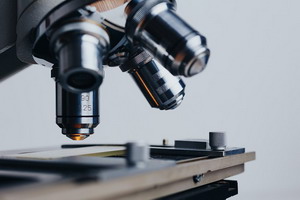 All science is based on population studies. Any finding found in only one person is considered anecdotal; possibly interesting but basically meaningless. Science wants studies that show consistent results on thousands of people. To
evaluate a large population, study statistics are used to determine the average outcome. The problem is no one is average, so the results don't really apply to anyone. A good example is a diet study I looked at recently. They wanted to know how much weight loss you could expect with a particular diet program. They put 50 people on the diet for 12 weeks and compared them to 50 similar people who did not
All science is based on population studies. Any finding found in only one person is considered anecdotal; possibly interesting but basically meaningless. Science wants studies that show consistent results on thousands of people. To
evaluate a large population, study statistics are used to determine the average outcome. The problem is no one is average, so the results don't really apply to anyone. A good example is a diet study I looked at recently. They wanted to know how much weight loss you could expect with a particular diet program. They put 50 people on the diet for 12 weeks and compared them to 50 similar people who did not  diet (the control group). After the 12 weeks, the statistics showed that the diet group lost an average of 5 pounds while the control group lost nothing. Sounds good, right? Except when I looked at the actual individual results, we had some people who lost 12 pounds, some who lost 3 pounds, some who lost nothing, and some who gained weight on the diet. No one actually lost 5 pounds. So if you went on this diet with the expectation that you would lose 5 pounds, in
reality, you have no idea if you will even lose any weight at all. You might even gain weight. As Mark Twain once said, “There are three kinds of lies: Lies, Damned Lies, and Statistics.” All of the
health research is based on this type of analysis of results. Research does not find truth, it finds estimates and educated guesses. diet (the control group). After the 12 weeks, the statistics showed that the diet group lost an average of 5 pounds while the control group lost nothing. Sounds good, right? Except when I looked at the actual individual results, we had some people who lost 12 pounds, some who lost 3 pounds, some who lost nothing, and some who gained weight on the diet. No one actually lost 5 pounds. So if you went on this diet with the expectation that you would lose 5 pounds, in
reality, you have no idea if you will even lose any weight at all. You might even gain weight. As Mark Twain once said, “There are three kinds of lies: Lies, Damned Lies, and Statistics.” All of the
health research is based on this type of analysis of results. Research does not find truth, it finds estimates and educated guesses.
 With this understanding of how the scientific method really works, you can begin to appreciate why that world is full of so many arguments. Seemingly identically reproduced studies can find quite the opposite results. Who's right? What tiny variations in how the study was performed or who it was performed upon caused such different outcomes? This is the
real world of science that I try to plow through to figure out opinions of the moment. Nothing is nailed down for me.
With this understanding of how the scientific method really works, you can begin to appreciate why that world is full of so many arguments. Seemingly identically reproduced studies can find quite the opposite results. Who's right? What tiny variations in how the study was performed or who it was performed upon caused such different outcomes? This is the
real world of science that I try to plow through to figure out opinions of the moment. Nothing is nailed down for me.
 Why this verbose critique of the scientific process? Because the world of what fats are healthy and what fats are not is one of the most hotly debated subjects in diet science circles. But there are a few things that we agree upon that we can look at. Food chemistry is more black and white and we can use some of that to make some assessments. First off, polyunsaturated oils (typically seed oils) are
far more easily damaged and made toxic by heat and oxygen. Monounsaturated oils like olive and avocado are less easily damaged, while saturated fats are not damaged by heat and oxygen. Besides the concern about which oils smoke more in your frying pan, why is this damage important? The answer is that it is precisely this oxygen damage that starts the cycle of atherosclerosis in our bloodstream. When polyunsaturated oils become incorporated into our lipoprotein carrier molecules that transport
cholesterol and triglycerides (the LDL cholesterol the doctor talks about) become oxidized, our immune system macrophages attack them and form foam cells which are the first stage of hardening of the arteries.
Why this verbose critique of the scientific process? Because the world of what fats are healthy and what fats are not is one of the most hotly debated subjects in diet science circles. But there are a few things that we agree upon that we can look at. Food chemistry is more black and white and we can use some of that to make some assessments. First off, polyunsaturated oils (typically seed oils) are
far more easily damaged and made toxic by heat and oxygen. Monounsaturated oils like olive and avocado are less easily damaged, while saturated fats are not damaged by heat and oxygen. Besides the concern about which oils smoke more in your frying pan, why is this damage important? The answer is that it is precisely this oxygen damage that starts the cycle of atherosclerosis in our bloodstream. When polyunsaturated oils become incorporated into our lipoprotein carrier molecules that transport
cholesterol and triglycerides (the LDL cholesterol the doctor talks about) become oxidized, our immune system macrophages attack them and form foam cells which are the first stage of hardening of the arteries.
 Whoa, does that mean we should avoid all polyunsaturated oils? No. Another bit of info from chemistry – omega 6 oils mostly generate inflammation in the body while omega 3 oils are anti-inflammatory. Both of these are polyunsaturated oils. While we may not like how inflammation feels, some of it is necessary to initiate the healing of tissues. The issue is all about balance. The current
consensus is that we should have somewhere between equal levels (1:1) of omega 6 to omega 3 to a bit more omega 6 to 3 (2:1). The problem is the standard American diet typically has 20 times as much omega 6 to omega 3 oil in it. This is old news and is why everyone takes their fish oil capsules. Unfortunately, no amount of good stuff can get rid of all the bad stuff. You have to stop eating high omega-6 foods. We don't want to because these are all the ultra-processed convenience foods we
love so much. Getting rid of all the excess omega-6 oils in our diet means having to cook at home with real whole unprocessed foods. It means no mayo, salad dressings, or fried foods. (Yes I know there is avocado oil mayo and salad dressings like olive oil and vinegar which are fine.)
Whoa, does that mean we should avoid all polyunsaturated oils? No. Another bit of info from chemistry – omega 6 oils mostly generate inflammation in the body while omega 3 oils are anti-inflammatory. Both of these are polyunsaturated oils. While we may not like how inflammation feels, some of it is necessary to initiate the healing of tissues. The issue is all about balance. The current
consensus is that we should have somewhere between equal levels (1:1) of omega 6 to omega 3 to a bit more omega 6 to 3 (2:1). The problem is the standard American diet typically has 20 times as much omega 6 to omega 3 oil in it. This is old news and is why everyone takes their fish oil capsules. Unfortunately, no amount of good stuff can get rid of all the bad stuff. You have to stop eating high omega-6 foods. We don't want to because these are all the ultra-processed convenience foods we
love so much. Getting rid of all the excess omega-6 oils in our diet means having to cook at home with real whole unprocessed foods. It means no mayo, salad dressings, or fried foods. (Yes I know there is avocado oil mayo and salad dressings like olive oil and vinegar which are fine.)
 What about the boogeyman of the past 70 years, saturated fat? Is it as bad as some people say it is? Other people say that it is divine manna from heaven that will save us. What do we believe? Again the answer does not lie in the realm of good versus bad. Every cell membrane in your body is made with part saturated fat and part unsaturated fat. You need both. The issue is in how much you need and
how healthy you are to begin with. Simply put, the bulk of the data says that if you are healthy you can eat saturated fat without problems. If you are obese or have gut issues (like leaky gut), you need to keep your saturated fat down to a max of 10% of your daily calories. On the flip side, many folks with autoimmune conditions are finding that a diet that is 80% saturated fat and 20% ruminant meat is healing them. Part of the key here seems dependent on how well you tolerate saturated fat has
to do with how many carbohydrates you consume. If you consume less than 20 grams a day and are in metabolic ketosis, your body can burn the saturated fat for fuel. But if you are not in ketosis, the saturated fat causes problems like insulin resistance and obesity. There is also an issue with saturated fat carrying inflammatory bacterial parts (lipopolysaccharides) into the bloodstream from the gut.
What about the boogeyman of the past 70 years, saturated fat? Is it as bad as some people say it is? Other people say that it is divine manna from heaven that will save us. What do we believe? Again the answer does not lie in the realm of good versus bad. Every cell membrane in your body is made with part saturated fat and part unsaturated fat. You need both. The issue is in how much you need and
how healthy you are to begin with. Simply put, the bulk of the data says that if you are healthy you can eat saturated fat without problems. If you are obese or have gut issues (like leaky gut), you need to keep your saturated fat down to a max of 10% of your daily calories. On the flip side, many folks with autoimmune conditions are finding that a diet that is 80% saturated fat and 20% ruminant meat is healing them. Part of the key here seems dependent on how well you tolerate saturated fat has
to do with how many carbohydrates you consume. If you consume less than 20 grams a day and are in metabolic ketosis, your body can burn the saturated fat for fuel. But if you are not in ketosis, the saturated fat causes problems like insulin resistance and obesity. There is also an issue with saturated fat carrying inflammatory bacterial parts (lipopolysaccharides) into the bloodstream from the gut.
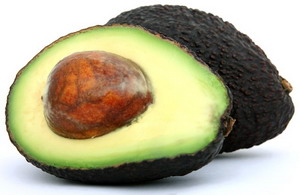 So where is all this putting us? The safest choice appears to be using the middle-of-the-road guys; the monounsaturated oils like olive and avocado. They are more heat stable and heat resistant to oxidation and not involved in the inflammation pathways in the body. We do need some omega 6 and 3 oils in the diet as they are involved in lots of necessary functions in the body. However, we really only
need a couple of teaspoons a day of these guys. So go ahead and take your krill oil capsules and eat a few nuts to cover this need. Saturated fat (like butter) is best kept down to 1-2 tablespoons per day unless you are slim and healthy.
So where is all this putting us? The safest choice appears to be using the middle-of-the-road guys; the monounsaturated oils like olive and avocado. They are more heat stable and heat resistant to oxidation and not involved in the inflammation pathways in the body. We do need some omega 6 and 3 oils in the diet as they are involved in lots of necessary functions in the body. However, we really only
need a couple of teaspoons a day of these guys. So go ahead and take your krill oil capsules and eat a few nuts to cover this need. Saturated fat (like butter) is best kept down to 1-2 tablespoons per day unless you are slim and healthy.
 There is a fourth type of oil that hardly anyone talks about which is short-chain saturated fats like caprylic acid and lauric acid which are typically derived from coconut oil. They are not processed like regular fats in the body. They are picked up in the gut and carried straight to the liver and used either for fuel or turned into ketone bodies to fuel the heart and muscles. I have not been able
to get any sort of dose for these types of oils from the literature. I just sort of play with them to see how I feel. Ultimately this is what it all comes down to – how do you feel consuming each of these different oils?
There is a fourth type of oil that hardly anyone talks about which is short-chain saturated fats like caprylic acid and lauric acid which are typically derived from coconut oil. They are not processed like regular fats in the body. They are picked up in the gut and carried straight to the liver and used either for fuel or turned into ketone bodies to fuel the heart and muscles. I have not been able
to get any sort of dose for these types of oils from the literature. I just sort of play with them to see how I feel. Ultimately this is what it all comes down to – how do you feel consuming each of these different oils?
Take
care,
David
Ellen
 While I was back East for Thanksgiving, my son Mason took me to Medieval Times for a playful evening of eating with our hands while watching Knights battle it out in the big arena. Part of the evening involved rooting for a particular Knight based on his flag colors, which matched a paper crown we were given
on the way in to the event. Knowing how much Ellen would miss participating in the fun and games, I brought my crown home for her to wear. Here we are! While I was back East for Thanksgiving, my son Mason took me to Medieval Times for a playful evening of eating with our hands while watching Knights battle it out in the big arena. Part of the evening involved rooting for a particular Knight based on his flag colors, which matched a paper crown we were given
on the way in to the event. Knowing how much Ellen would miss participating in the fun and games, I brought my crown home for her to wear. Here we are!
|
 Squats reverse brain loss due to sitting
Sitting reduces blood flow to the brain and lowers concentration and alertness. In this study they found that doing 15 chair squats every 20 minutes while sitting prevented this decrease of blood flow to the brain. Squats reverse brain loss due to sitting
Sitting reduces blood flow to the brain and lowers concentration and alertness. In this study they found that doing 15 chair squats every 20 minutes while sitting prevented this decrease of blood flow to the brain.
Brain Squats
_____________________________________________
"The mind is not a vessel to be filled but a fire to be kindled."
~ Plutarch
__________________________________
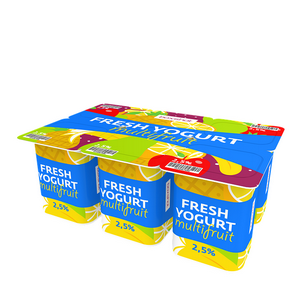 Gut bacteria directly affect anxiety/depression
Chronic stress reduces our levels of the good gut bacteria lactobacillus. It turns out that these bacteria control a cytokine inside us called interferon gamma, and when its levels drop we end up more anxious and depressed.
Anxious bacteria
________________________ Gut bacteria directly affect anxiety/depression
Chronic stress reduces our levels of the good gut bacteria lactobacillus. It turns out that these bacteria control a cytokine inside us called interferon gamma, and when its levels drop we end up more anxious and depressed.
Anxious bacteria
________________________
"The real destroyer of the liberties of the people is he who spreads among them bounties, donations and benefits."
~ Plutarch
_________________________________________________
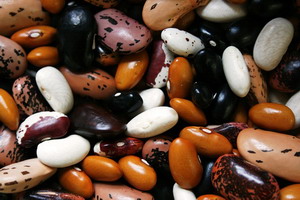 Eating beans fights colon cancers Eating beans fights colon cancers
Beans contain prebiotic fiber that feeds good guy bacteria in our gut. Weakened gut immune systems due to eating processed foods have more bad gut bacteria that promotes colon cancer. Eating beans has been found to increase the good guys and decrease the bad guys.
Cancer beans
_________________________________________
"To find fault is easy; to do better may be difficult."
~ Plutarch
_____________________________
Our address is 9725 Fair Oaks Blvd. suite A
Our hours are M, Tu, Th, F 10 to 3:30
Finding our location is very easy. Coming from highway 50 up Sunrise Blvd, you turn left and go up a block. We are on the right hand side - the building just past the Subway Sandwich shop. If you are coming down Sunrise from the Mall area then just turn right on Fair Oaks Blvd and up a block on the right.
If you are coming from the Roseville area you could come down Sunrise Blvd, but that is a long trek. It is probably shorter time wise to come down Auburn Blvd - San Juan Ave like you have been for the Sunset office, but instead of turning left at Sunset, keep going straight 3 more lights to Fair Oaks Blvd and turn left. Go down 2 lights to New York Ave, go through the intersection, and immediately turn into the turn lane once the center
divider ends. We are on the left.
You are free to reprint this article in your newsletter as long as you include the following statement in the same size type and color:
"This article appears courtesy of Fair Oaks Health News, offering natural and healthy solutions for body, mind and soul. For a complimentary subscription,
visit http://www.fairoakshealth.com"
Referral doctor for when we are out of town: Jennifer Webb DC
Jennifer Webb DC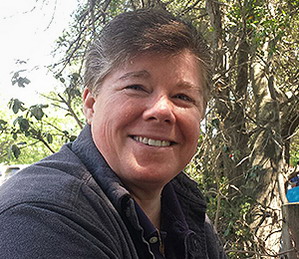
6216 Main St. suite C1
Orangevale
988-3441
|
| |
|
|
|
_______________
to check on old newsletters
_______________
About Dr. DeLapp
|
Dr. DeLapp has been a philosopher, non-force Chiropractor, medical intuitive, and health innovator for over 41 years. He began experimenting with medical intuition in 1972 while studying physics at UC Davis. In addition to physics he designed and completed an individual major in the philosophy and psychology of education. Shortly after he choose to pursue a career in the only
truly health oriented profession available at that time, Chiropractic. He graduated with honors in 1981 with his doctorate and opened a private practice.
Since that time he has continued his research into the effects of consciousness and learning on health.
He developed the Biomagnetic Retraining system for correcting movement abnormalities.
Since 1991 he has focused on developing a powerful system for uncovering and assisting the mind-body connection in health and personal growth. The in-depth coaching, guided by the subconscious direction from the body, is called Heartflow. It is available at Fair Oaks Health.
Fair Oaks Healing
& Arts Center
Staff
 Dr David DeLapp DC
Dr David DeLapp DC
Chiropractor
Ellen Flowers FGM
Spiritual Life CoachEnergetic Nutritionist
Health Care Coordinator
Susan Richardson
Office Manager
Front Desk
Sherry Herrera
Front Desk Person
Susan McDonald
|
|

